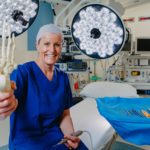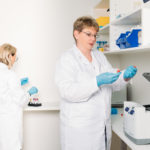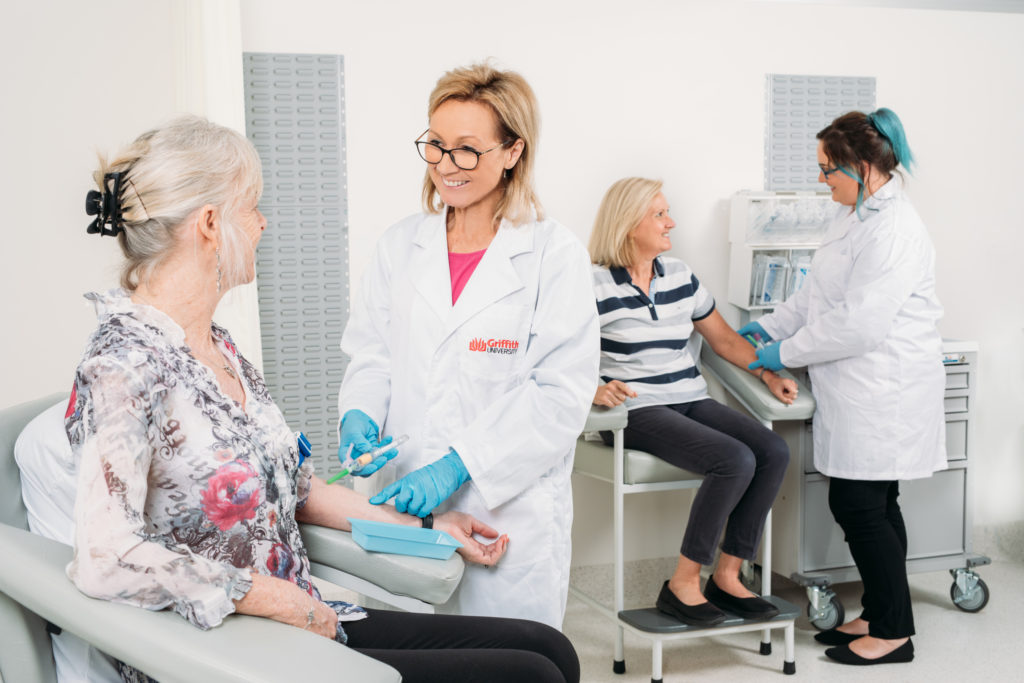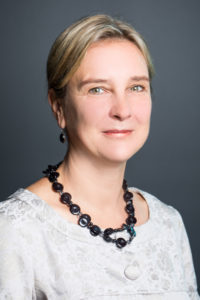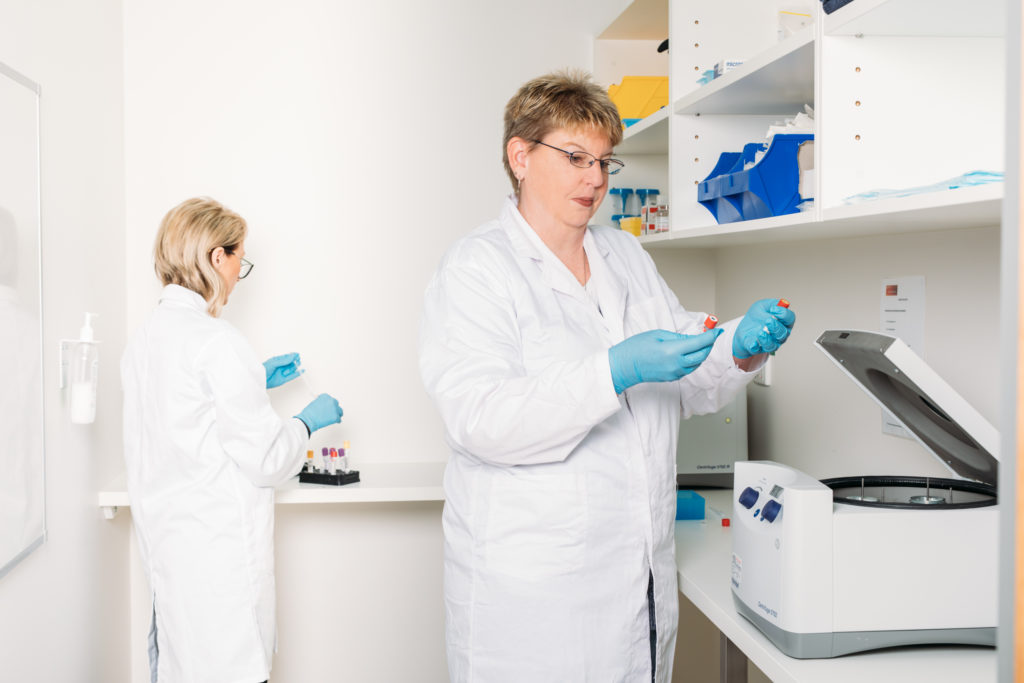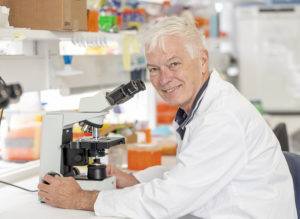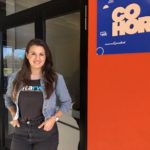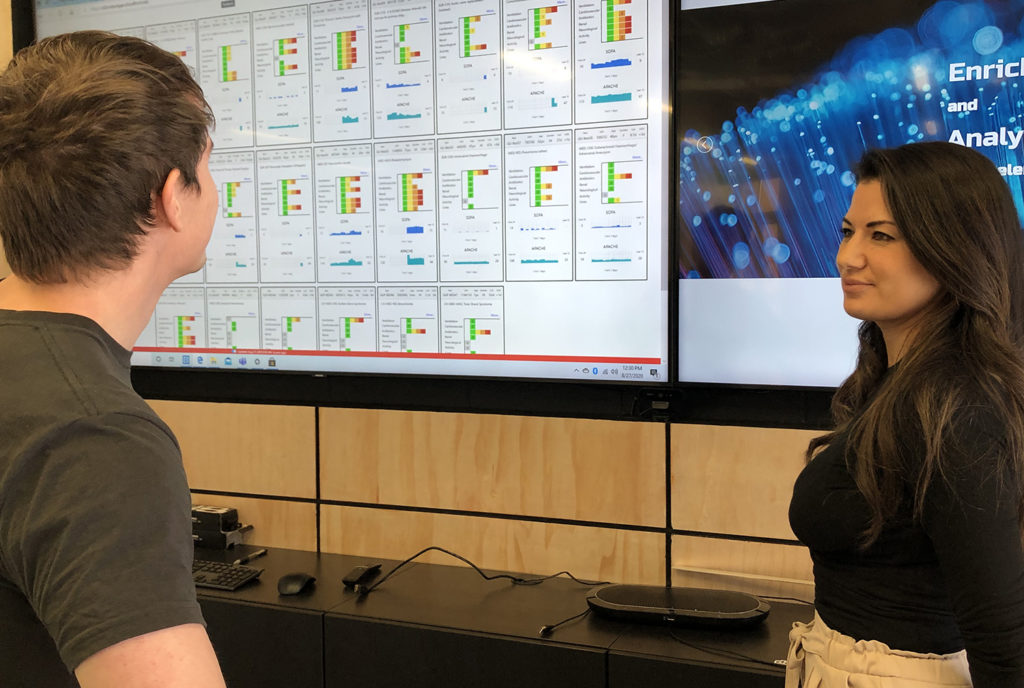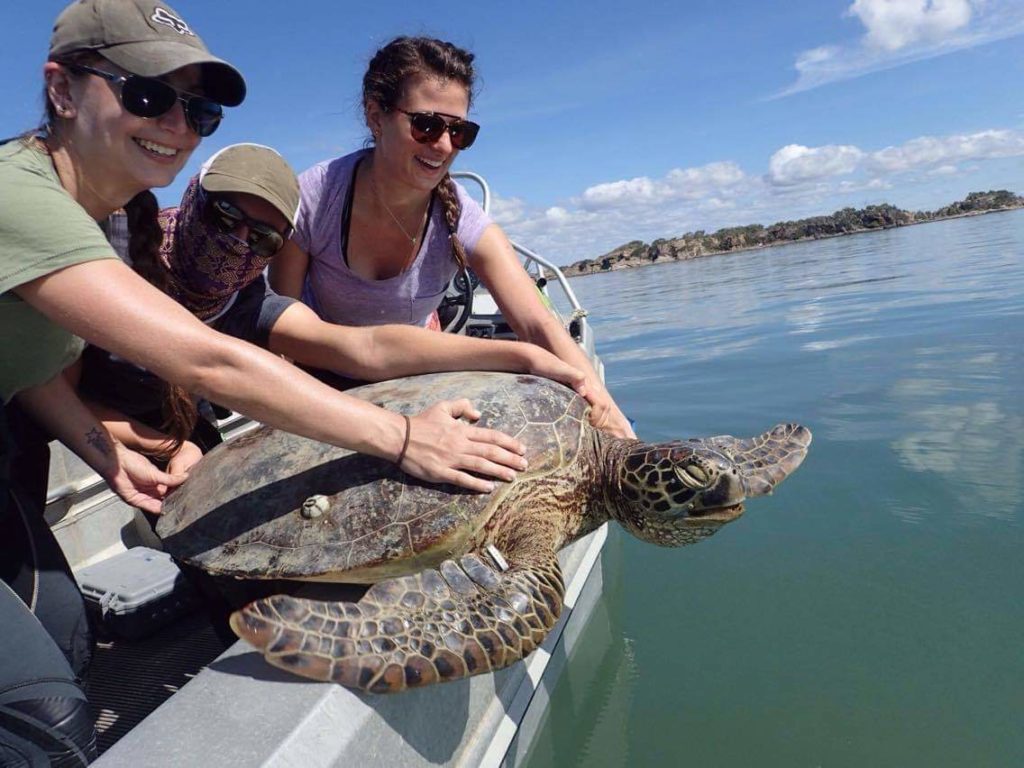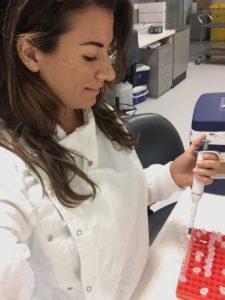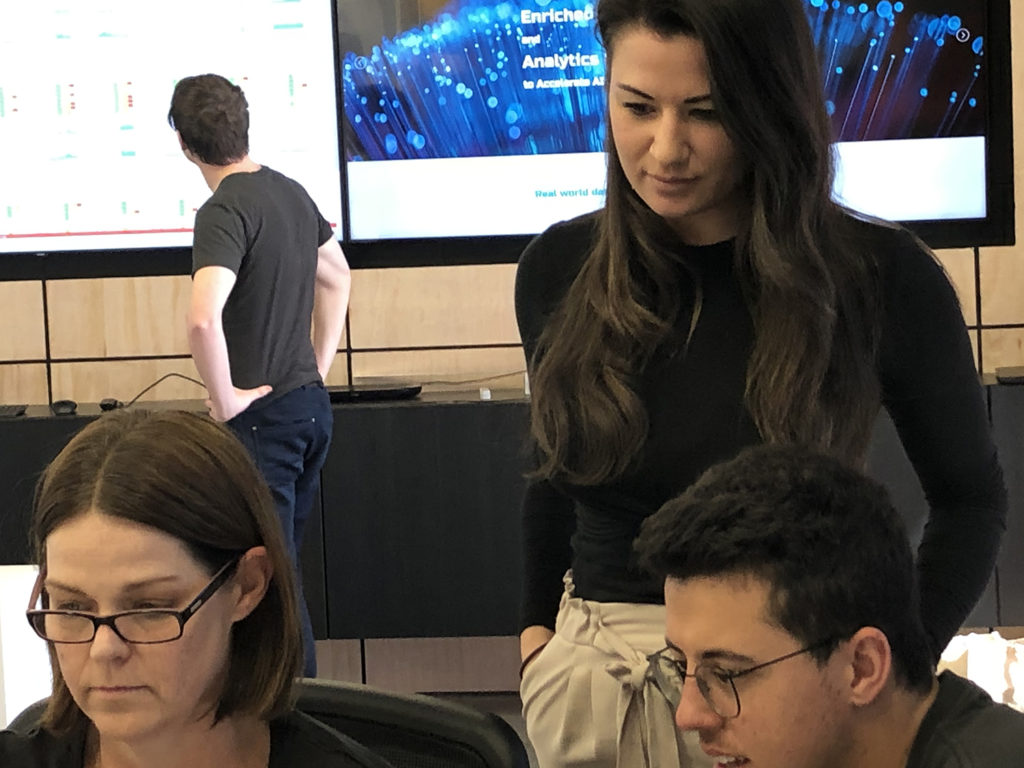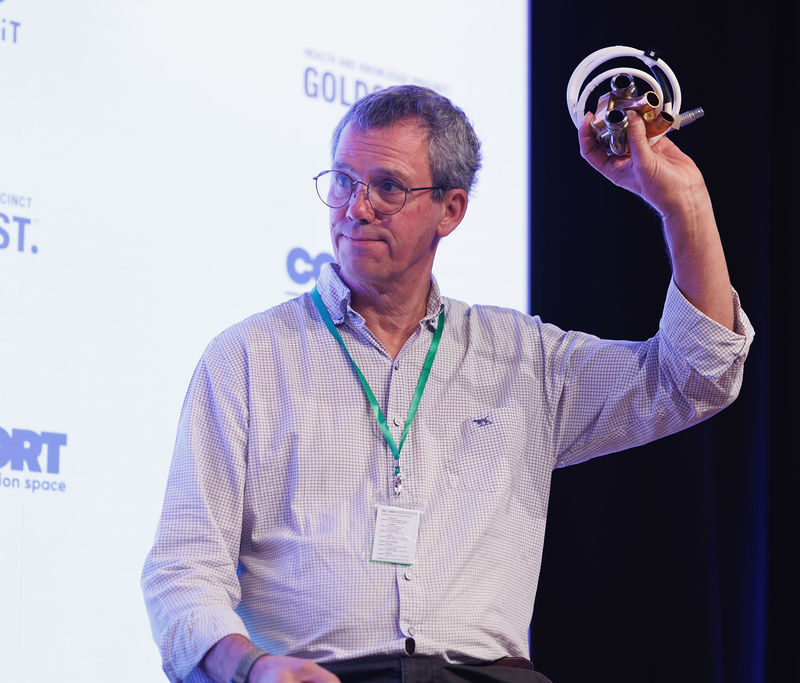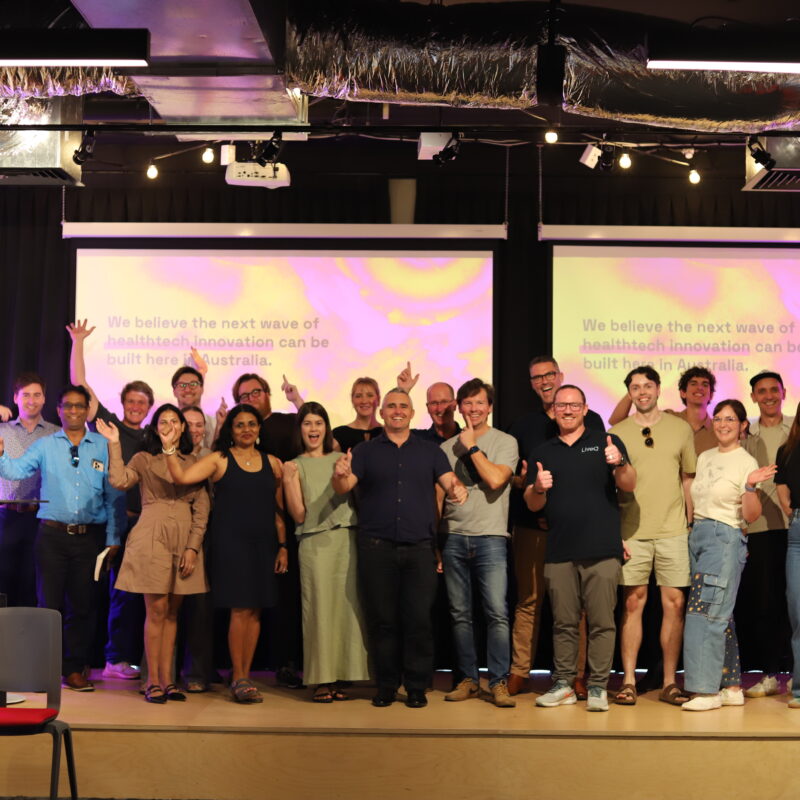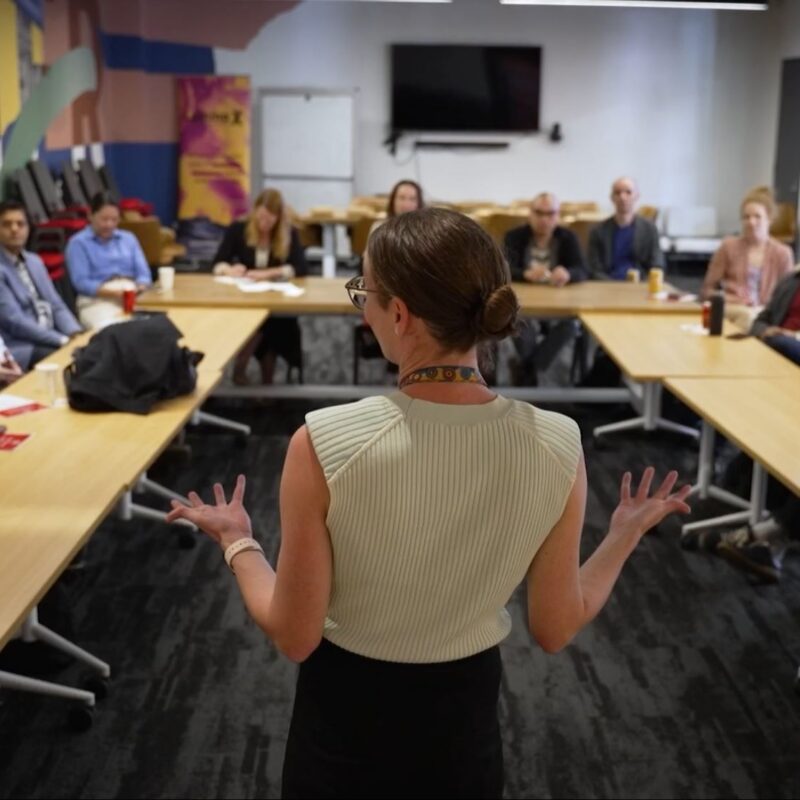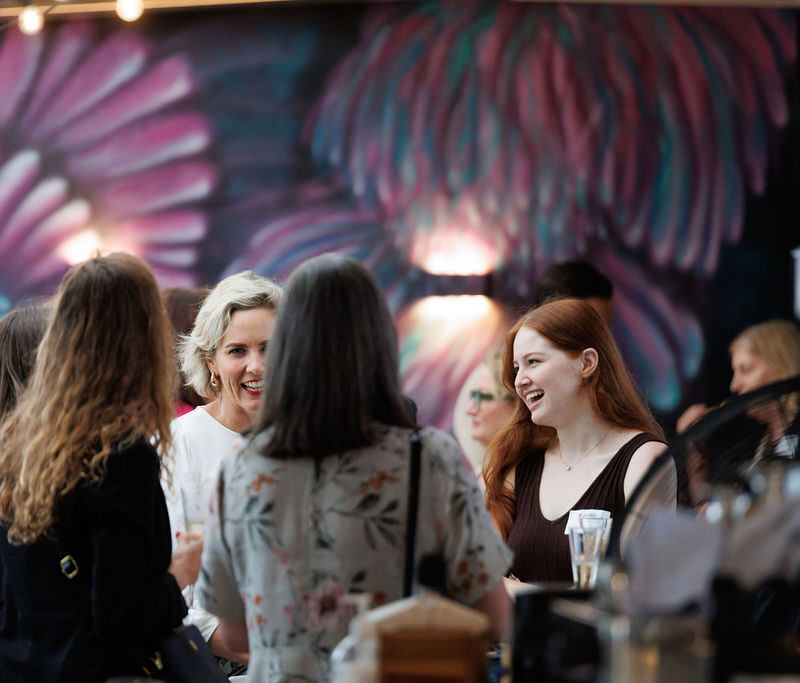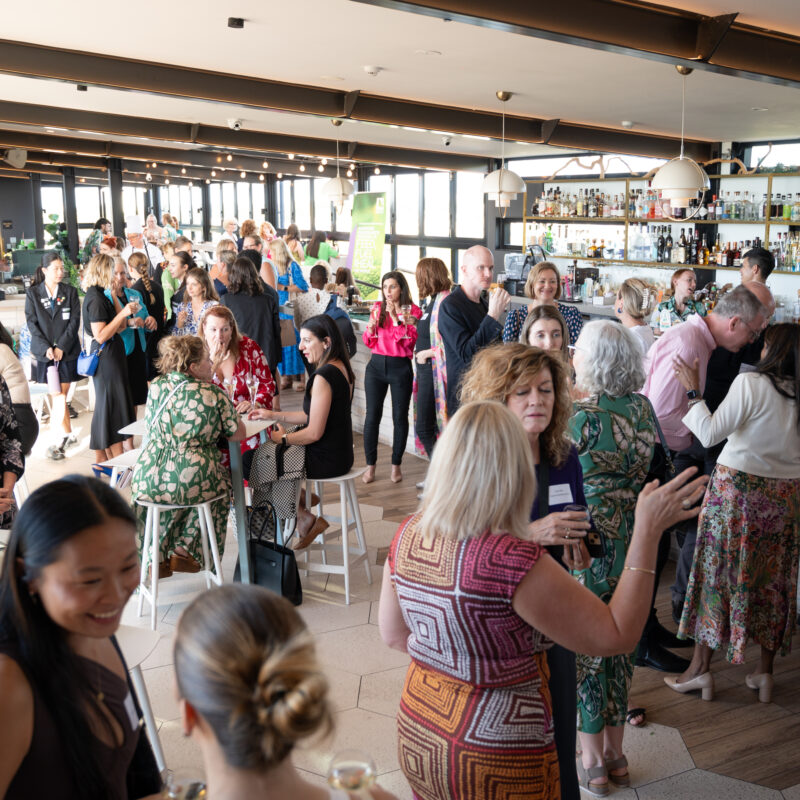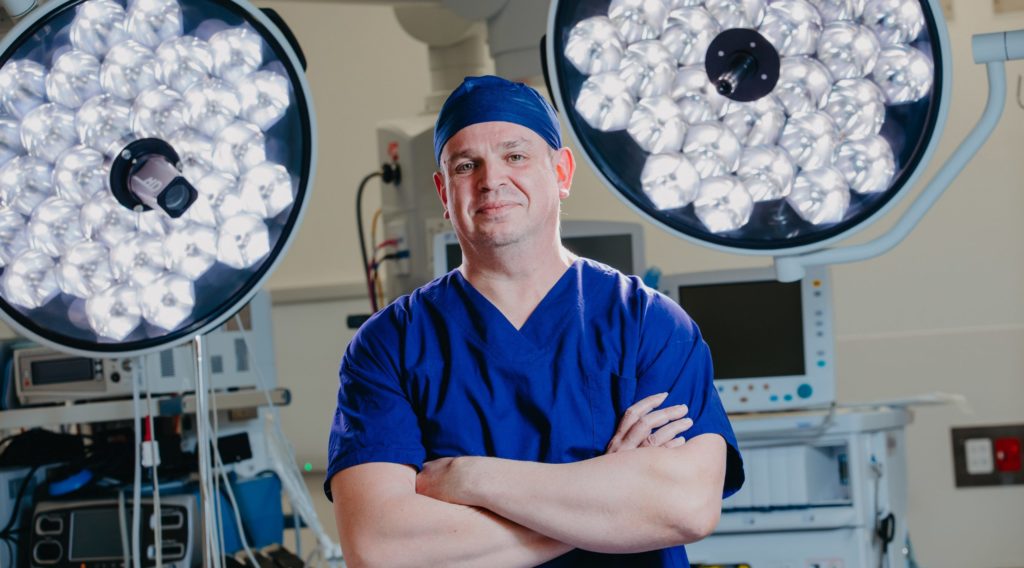
Orthopaedic treatment continues to advance, utilising robotic surgery, innovative regenerative medicine techniques including 3D printing, and minimally-invasive procedures where possible to reduce risks and hasten healing.
From ‘all inside’ surgery for knee and ankle ligament repairs to alternative hip replacement techniques, surgeons at Gold Coast Private and Gold Coast University hospitals, and research colleagues at Griffith University, innovate to fix the breaks, replace and repair joints, ligaments and tendons and ease pain and arthritis.
Returning from working in the UK, Dr Annabelle Stabler has recently launched the city’s first private paediatric orthopaedic service, and joined her father, veteran upper limb orthopaedic surgeon Dr David Stabler, who in his 35 years in practice has seen the Gold Coast orthopaedics field grow from 8 or 9 surgeons in the mid-1980’s, to around 70 now.
For the younger Dr Stabler, her work is as much about fixing childhood problems as it is about preventing issues in adulthood.
“With developmental dysplasia of the hip, and neuromuscular hip conditions in particular, screening and early non-operative intervention can make a huge difference for many children,” Dr Stabler says.
Dr Stabler has a particular interest in looking after children with hip problems, including babies with dysplastic hips, older children with Perthes and SUFE and children with neuromuscular conditions such as Cerebral Palsy.
Cutting edge research and surgery
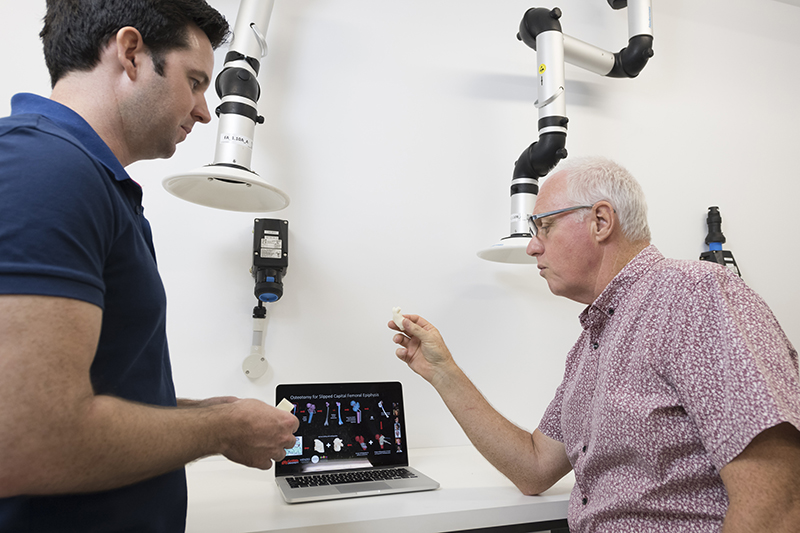
It’s been a big team effort to develop award-winning technology incorporating in-silico (digitally-enabled) surgery and implant design, and 3D printed surgical cutting guides for individual paediatric patients – eight surgeries have now been successfully performed at Queensland Children’s hospital, thanks to the cutting-edge collaboration between surgeons and Griffith University researchers, led by Associate Professor Chris Carty. These digitally-enabled surgeries are reducing theatre time and aiming to improve patient outcomes, in what is an Australian-first. Read more
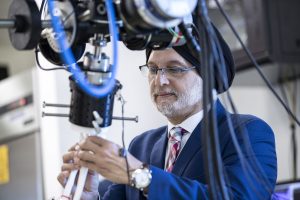
Fellow GCore clinical researcher Professor Randy Bindra continues to innovate, as clinical lead of a ground-breaking project to develop artificial wrist ligament to treat a common sports injury, and his quest for precision medicine extends all the way to the precious fingertips.
“In the past, fingertip injuries would simply be treated with amputation,” Professor Bindra says.
“With the right care, finger injuries including the tip, can be salvaged and restored – without it, these injuries can become a nightmare.”
Stepping forward with minimally invasive techniques
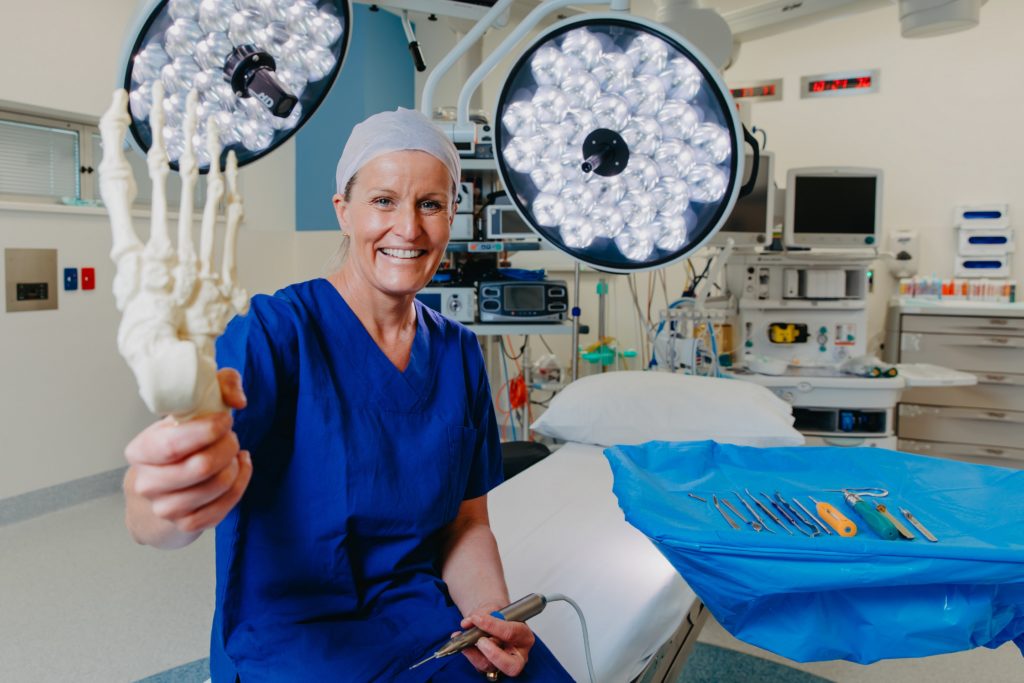
Minimally-invasive techniques in bunion surgery are relatively new to Australia, but foot and ankle surgeon Sonja Schleimer has years of experience, after training in Paris under one of its pioneers.
“MIS bunion surgery evolved in Europe over the last 15 years, but it has only been available in Australia for about the last five years or so,” says Dr Schleimer.
“I was very fortunate to spend some time operating with Dr Oliver Laffenetre, who was heavily involved in developing and evolving MIS techniques for forefoot surgery.”
Meanwhile, Dr Simon Platt is one of only a handful of orthopaedic surgeons in Queensland performing an “all-inside” ligament reconstruction to help patients suffering from chronic ankle instability get back into the sporting arena.
The foot and ankle specialist, who recently joined Gold Coast Private, says the less invasive technique, known as the ArthroBrostrom, resulted in fewer wounds, swelling and scaring than the more traditional approach to surgery.
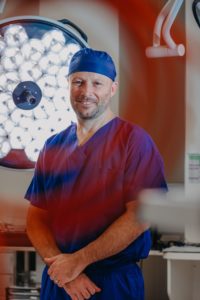
Dr Price Gallie also employs an ‘all-inside’ technique, in his case, for common knee surgery, with his arthroscopic ACL reconstruction using a shorter graft with a wider diameter that allows an accelerated recovery and may reduce the risk of re-rupture.
He employs a variety of grafts including the patellar tendon, quadriceps tendon and allograft (donor tendon), alongside the traditionally-used hamstring – matching the graft to the patient, rather than the other way around.
“With ACL reconstruction, we aim to restore normal movement and function, which is why I pioneered the introduction of the “all-inside” technique using the TLS® system,” he says.
More recently Dr Gallie has focussed on other graft choices and is currently studying the use of the peroneus longus tendon with very promising outcomes.
“We need to treat each patient on an individual basis rather than doing the same generic operation for everyone.”
For Dr Stephen Sprague, hip surgery is all about the contemporary approach – which is ‘front to back’ from the standard one.
Hip joint replacement surgery is traditionally done via a posterior approach through the back of the hip, but after training in the anterior method eight years ago, Dr Sprague prefers the alternative.
“Having performed both approaches during my career, I have observed that in the short-term people find the anterior approach less painful, while long-term outcomes are very similar,” he says.
“A huge benefit of the anterior approach is the reduced risk of dislocation which means the patient doesn’t have to worry about it in their day-to-day activities and can resume a much more normal lifestyle.”
Gold Coast Private has advanced state-of-the-art robotic technology giving surgeons the option of performing robot-assisted surgery in orthopaedics, ENT and neurology.
Orthopaedic lower limb surgeon Dr Andrew Letchford, offers robotic surgery for hip and knee joint replacement for improved planning and precision.
“Robotic-assisted surgery has only been available in Australia since 2016. We await joint registry confirmation of the full impact of this technology, however, we are definitely seeing improvements in the performance of partial knee replacement surgery,” Dr Letchford says.
“In my hands, I’ve certainly found a much more uniform, reliable outcome for my patients in the post-operative phase. Computer navigation has been around for many years and with the addition of robotic technology we have now developed ways to finely balance a joint replacement in real time.”
